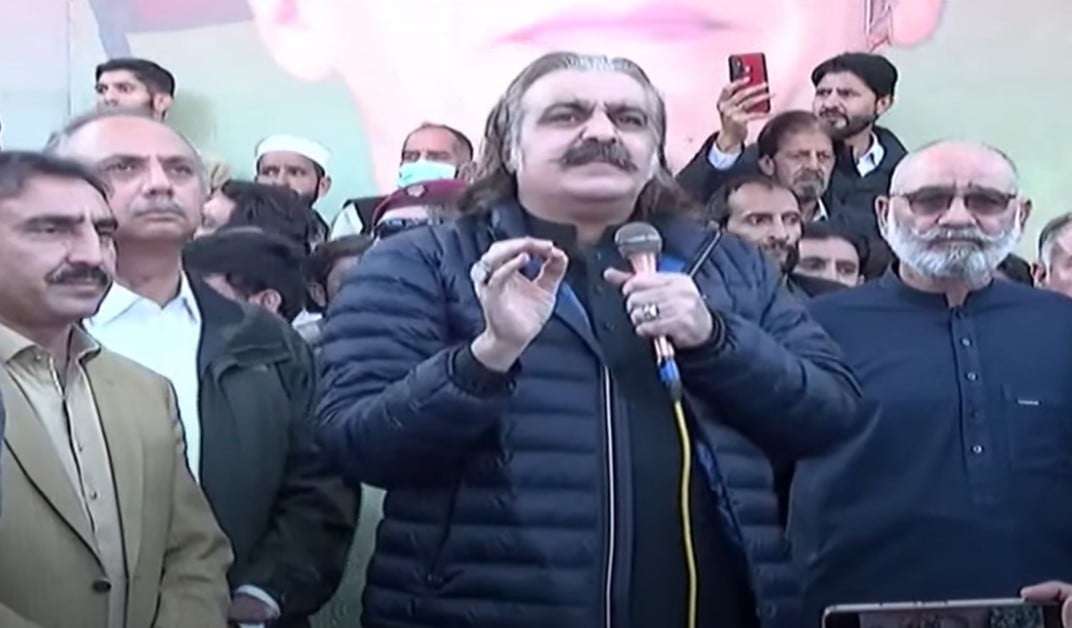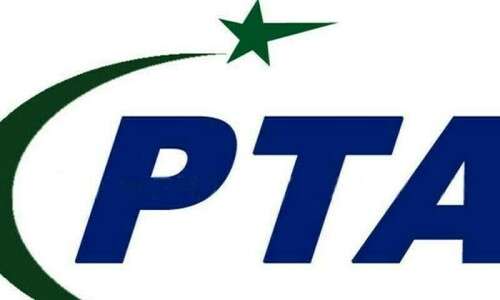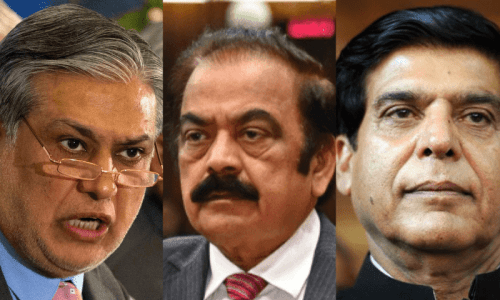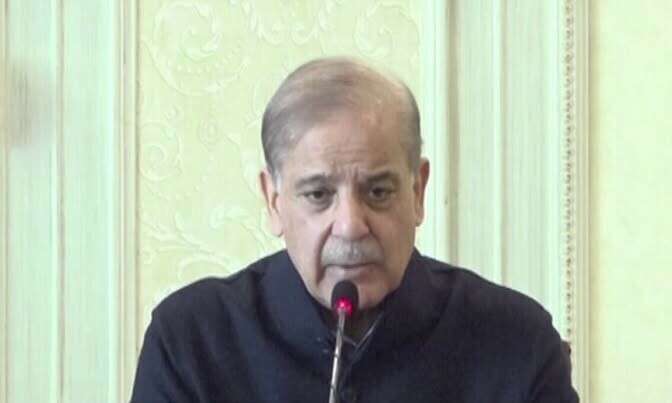Introduction
In a bold statement, Khyber Pakhtunkhwa (KP) Chief Minister Ali Amin Gandapur has declared that the Pakistan Tehreek-e-Insaf (PTI) protest is far from over. He emphasized that only Imran Khan, the founder of PTI, has the authority to decide when the protest will conclude. This announcement came after PTI temporarily suspended its protest earlier this week following a midnight crackdown by law enforcement officials.
Despite the suspension, Gandapur reassured the PTI supporters that the struggle for Pakistan’s future would continue under Khan’s leadership. He also voiced sharp criticism against the government’s handling of the situation, accusing them of using force to suppress peaceful demonstrations. This article delves deeper into the ongoing political struggle, PTI’s claims, and the government’s actions in response to the protests.
PTI’s Protest and Its Current Status
A Temporary Suspension, Not an End
On Wednesday, PTI announced the temporary suspension of its “do-or-die” protest, which had taken place in several parts of Pakistan. The protest aimed to highlight PTI’s demands for basic freedoms and a fair political system. Despite this announcement, the leadership made it clear that this was only a pause in the movement, and it would resume once Imran Khan deemed it necessary.
Gandapur, during a press conference in Mansehra, explained that this was not the end of the protest but merely a strategic halt. “This protest, initiated by Imran Khan, is not just political; it’s a fight for Pakistan’s future,” he asserted. According to Gandapur, the party’s goals extend beyond political gain and are rooted in ensuring the fundamental rights of the people of Pakistan.
The Role of Imran Khan in the Protest
Imran Khan’s leadership remains central to PTI’s protest strategy. CM Gandapur made it clear that the movement would continue until Khan himself decides otherwise. “This is not just a political demonstration but a fight for our fundamental rights,” Gandapur reiterated, highlighting the central role of Khan in making key decisions about the protest’s continuation or conclusion.
Allegations Against the Government
Government’s Use of Force and Suppression
While PTI claims to be a peaceful party, Gandapur accused the government of using oppressive tactics to suppress the protests. According to him, PTI supporters were subjected to illegal detentions, violence, and other forms of harassment. He stressed that the government had been actively preventing PTI from holding peaceful rallies, which is a fundamental right in any democratic society.
The government’s response, according to Gandapur, included violent crackdowns on peaceful demonstrations, and PTI members have reportedly been shot at, beaten, and arrested during the protests. He criticized the use of force by the state, stating that the peaceful nature of PTI’s movement had been met with “extreme measures.”
Criticism of Police Brutality
Gandapur did not hold back in criticizing the law enforcement agencies for their role in suppressing the PTI protests. He mentioned that police had used brutal tactics, including firing on protestors, which had led to several injuries and even fatalities among PTI supporters. “We have remained peaceful throughout this movement, but the government met our protests with gunfire,” he said.
He added that PTI workers had been subjected to physical violence and repression, which undermined the democratic process. Despite these challenges, he expressed admiration for the resilience of PTI’s workers, noting their unwavering commitment to the cause, even in the face of state violence.
PTI’s Struggle for Basic Freedoms
The Fight for Fundamental Rights
At the heart of PTI’s protest is the demand for the protection of basic rights and freedoms. Gandapur highlighted that the protest was not just about political victories but about ensuring the fundamental rights of Pakistani citizens. He emphasized that the movement was a fight for a future where the dignity of the people is upheld and their freedoms protected.
“The movement is not merely a political struggle; it is a fight for the fundamental rights of every Pakistani citizen,” Gandapur asserted. PTI’s core objective is to empower people, ensure their freedoms, and challenge any government action that seeks to restrict these rights.
Implications for Pakistan’s Political Landscape
The ongoing protest has broader implications for Pakistan’s political landscape. PTI’s struggle for basic freedoms is seen by many as a challenge to the entrenched political establishment. Gandapur emphasized that PTI’s fight is about securing a better future for the nation, transcending political party lines and focusing on the needs of the citizens.
“The government has used its full force to stifle our peaceful protests, but we will not back down. We will continue to fight for our rights,” he declared.
The Government’s Response to PTI’s Protest
Life Returning to Normalcy in Islamabad
In contrast to the ongoing protests, life in Islamabad has begun to return to normal after the completion of a large-scale operation to disperse PTI protestors. Authorities confirmed that all motorways, which had been shut down during the protests, were now open. This development has provided relief to commuters and restored regional connectivity, including the reopening of the Islamabad-Lahore motorway (M-2) and the Lahore-Sialkot motorway.
Additionally, schools and businesses in the capital are set to resume operations following the temporary suspension of the protests. The city’s calm atmosphere signals a return to normalcy after days of intense clashes between PTI protestors and law enforcement agencies.
PTI’s Allegations of Government Missteps
While the streets of Islamabad have quieted, PTI’s leadership has not backed down from its claims of government overreach. Akram, a senior PTI leader, referred to the government’s actions as a “severe blow” to the party. “The final call from PTI was a missed call,” he said. He accused the government of forcing PTI leaders to flee, leaving behind their belongings, including shoes, clothes, and vehicles.
This statement was echoed by Tarar, who criticized the government’s crackdown and claimed that many PTI supporters had been left stranded after the protest was disrupted.
Conclusion
The ongoing political unrest in Pakistan underscores the volatile nature of the country’s political environment. Despite facing heavy opposition and violent suppression, PTI’s protest, as stated by CM Gandapur, is far from over. The movement will persist as long as Imran Khan continues to lead it, and PTI will not back down in its struggle for the fundamental rights of Pakistanis.
FAQs
1. What is the current status of PTI’s protest? The protest by Pakistan Tehreek-e-Insaf (PTI) has been temporarily suspended, but it will continue as long as Imran Khan, the party leader, decides.
2. Why does PTI continue its protest despite the suspension? PTI’s protest is seen as a movement for basic freedoms and the protection of fundamental rights, not merely a political demonstration. The party is committed to continuing the struggle until its demands are met.
3. How has the government responded to PTI’s protests? The government has been accused of using violent tactics to suppress the protests, including detaining PTI members, using force against demonstrators, and blocking peaceful rallies.
4. How has life in Islamabad been affected by the protests? After the large-scale operation to disperse PTI protestors, life in Islamabad has returned to normal, with motorways reopening and business and school activities resuming.
5. What is the broader significance of PTI’s protest? PTI’s protest is not only about political gain but also about ensuring fundamental rights for the people of Pakistan and challenging any attempts to suppress freedoms.



